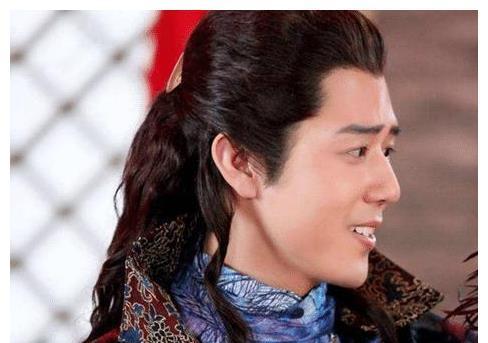In the thousands of years of Chinese historical civilization, we can find many changes that have played a huge role in society, but there are a few who are led by the monarch and as the leaders of the reform.
Social change often injects vitality into social development when everything is in ruins and waiting to be revived, and the reforms of Empress Feng and Emperor Xiaowen during the Northern Wei Dynasty have promoted the progress of China's history from the aspect of ethnic integration.

The Northern Wei regime belonged to the Xianbei people, and after the rise of the Xianbei people, they overthrew the relatively perfect feudal regime of the Han nationality and began to write their own history, but after they unified the north.
The huge territory is full of political, cultural and other contradictions, when the Northern Wei regime was first established, it was very backward, and the feudal system of the Han nationality accelerated the evolution of the Northern Wei from slavery to feudalism.
From an economic point of view, the Xianbei people have always taken grazing as the main economic form, while the vast northern land has fertile land resources, so the economy urgently needs to change to agriculture.
And with a radical and harsh policy, in the long run, it caused the resistance of the Han people, the instability of the Northern Wei regime, and it had a huge relationship with it, and under the influence of various economies and politics, the Reform of the Northern Wei Was imminent.
In order to consolidate its rule in the Central Plains, the Northern Wei Dynasty began to implement a series of reform measures, and politically, in view of the corruption of officials at that time, decided to implement the FengLu system.
It had an important influence on the development of the central system of the government in our country for future generations, and strict laws were enacted to punish corrupt officials, so that the situation of the spontaneity of officials and the determination of the spoils of war by officials has been greatly improved.
When the Northern Wei dynasty was first established, the system of suzerainty was too high due to local autonomy, which posed a great threat to the central government, so after the reform, the three-chief system was implemented, which was directly responsible for by the central government and cooperated with the Juntian system, so that the local grass-roots political power was continuously improved.
In terms of economy, in order to alleviate the fact that at the beginning of the Northern Wei Dynasty, there were many displaced people, and the land property was occupied by some corrupt officials, in order to alleviate this situation and stabilize social order, the Northern Wei began to implement the equalized field system.
Land is distributed rationally according to age and gender, and taxes are set according to profitability. In addition, the Northern Wei Also carried out new lease modulation, which led to a large amount of land reclamation and promoted the progress of agricultural production.
The economic and political gap between the ethnic minority regimes of the Northern Wei Dynasty and the Han national regimes also made them very different in culture, and the integration of culture was a necessary means to consolidate political power in terms of ideology and so on.
Therefore, Emperor Xiaowen of the Northern Wei Dynasty widely promoted Confucianism in society, and the wide dissemination of Confucian classics and Confucian etiquette made the essence of Han culture absorbed and accepted by the Northern Wei.
The funeral system has also gradually sinicized, integrating Confucian culture into it, and the use of "ritual" has a major role in the stability of social order. In terms of official positions, the Northern Wei continued the Han Dynasty's Nine-Pin Zhongzheng system, which was convenient for management and supervision, and the Northern Wei dynasty was fully Sinicized in terms of political culture, which played an important role in maintaining the governance of the system.
The sinicization of customs and habits was also an important part of the Reform of the Northern Wei Dynasty, which formulated policies to stipulate the wearing of Han costumes and the speaking of Chinese, and changed the surname of the Xianbei people to the Han surname.
For example, the Tuoba clan was changed to the Yuan clan, and the door valve system was also based on the Han system, and at that time, the government encouraged the Xianbei to intermarry with the Han, and various policies played a huge role in alleviating ethnic contradictions and promoting the development of the Northern Wei.
The reform of Emperor Xiaowen of the Northern Wei Dynasty played a major role in promoting the feudalization and economic and political development of the Northern Wei Dynasty, and was also of great benefit to the national integration of our country, and also showed the superiority of Emperor Xiaowen.
However, the full Sinicization has caused the loss of some excellent culture of the Xianbei people, and it has a negative impact on the overall absorption of the Han culture and the integration of some dross into the reform. Overall, the reforms of Emperor Xiaowen of Northern Wei promoted the development of the Northern Wei regime, but did not persist for a long time.